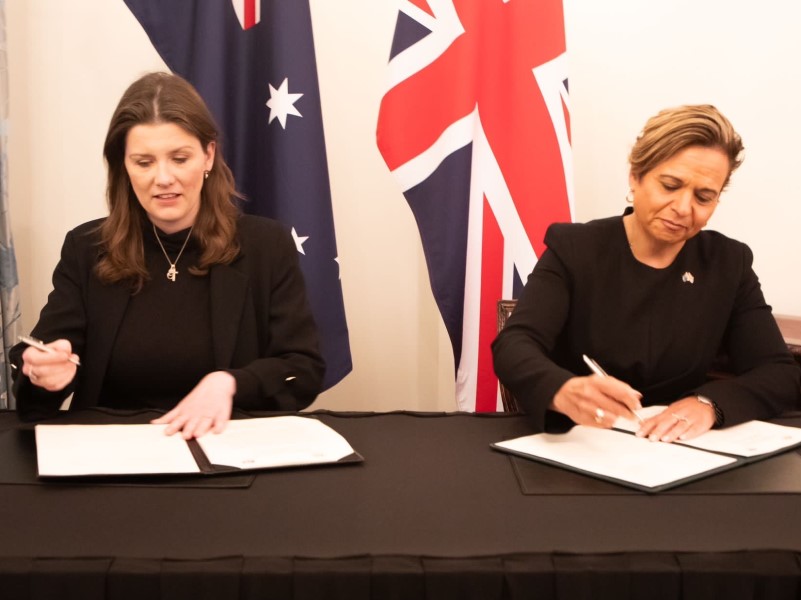Australia and United Kingdom have committed to bilateral cooperation on improving digital online safety and security issues under a new intergovernmental agreement.
The Memorandum of Understanding includes references to illegal content, child safety, age assurance, technology facilitated gender-based violence, and addressing harms caused by rapidly changing technologies like generative AI.
Under the agreement, signed on Wednesday, the two countries will seek to strengthen their respective Online Safety Acts as they strive to become “the safest places in the world to be online”, according to a joint statement.
They also believe the partnership will enable them to “lead the international agenda and shape a global consensus on tackling online harms”.

The agreement will involve a new annual online safety and security policy dialogue, increased coordination between regulators and increased cooperation between law enforcement agencies, and work with industry to address safety challenges posed by design choices.
Work under the MoU will be progressed by the UK’s Department for Science, Innovation and Technology and Australia’s Department of Infrastructure, Trasport, Regional Development, Communications and the Arts, in collaboration with other relevant government agencies.
Communications minister Michelle Rowland said the two “likeminded allies and key partners” are committed to protecting the safety of their citizens online.
“Working together, we will protect the privacy, safety and security of our citizens, without stifling the innovation that is vital for economic, social and individual progress,” Ms Rowland said.
“Online safety is a shared, global responsibility. We must be proactive in ensuring that our legislative frameworks remain fit-for-purpose, and continue to evolve as new harms emerge.”
A key difference of the UK’s Online Safety Act is the inclusion of a requirement that online service providers use age verification technology to prevent children from accessing pornographic content, material related to suicide and self-injury, or material related to eating-disorders.
In August 2023, the Australian government rejected eSafety’s recommendation to trial age assurance, claiming the technology is immature. eSafety Commissioner Julie Inman Grant maintains that there are a range of viable technologies currently available.
“There are a range of technologies out there that are being used for the purposes of gambling and alcohol and can be used to protect children from pornography as well in a way that is privacy protective and enhancing,” she said during Senate Estimates last week.
Instead of age verification, the government is requiring eSafety to develop enforceable industry codes requiring online service providers to limit access to class two material – which is legal but deemed inappropriate for children, such as pornography.
The government has pledged to reconsider an age assurance trial following the industry codes process.
UK secretary for Science, Innovation and Technology Michelle Donelan said the two countries are “at the forefront of online safety”, with “pioneering approaches… helping to create a safer and more secure digital world, protecting our citizens and holding platforms to account”.
The United Kingdom’s Office of Communications, the online safety regulator, chairs the Global Online Safety Regulators Network, which Australia’s Office of eSafety Commissioner was a founding member.
The MoU announcement was made just days after the European Commission opened an investigation into TikTok for a potential breach of the Digital Services Act, which came into full effect over the weekend.
Do you know more? Contact James Riley via Email.

